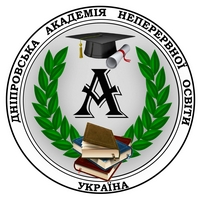USING THE «METAPHORIZATION» TECHNOLOGY IN MEDIA LITERACY TRAINING
Abstract
The article is devoted to the analysis of interactive and reflective technology and its use in the process of conducting training on media literacy and critical thinking. The main approaches to the definition of the concept of «metaphorization» in the format of training and scientific categories of thinking are considered. Metaphorization in training is the use of metaphors as a powerful learning tool that promotes deeper understanding and assimilation of the material. This article discusses the role of metaphors in the training process, identifies their main functions and mechanisms of influence on participants. The authors emphasize the ability of metaphors to promote creativity, deeper comprehension of the training material, and more effective communication between the trainer and participants. Considerable attention is paid to the analysis of specific examples of metaphors that have been successfully used in trainings, as well as to the methods of creating them and adapting them to different learning objectives and audiences. The influence of cultural factors on the perception of metaphors is also considered, which requires trainers to have a deeper understanding of the cultural context of their participants. The peculiarities of approaches to the definition of the concept of metaphorization in education are analyzed. It is argued that since each person is a carrier of a special semantic space peculiar only to him or her, many elements of which are metaphorical, it is possible to distinguish a set of individual metaphors in relation to the problem or phenomena under study. On this basis, the author's original technology «metaphorization in training» was created, which has been repeatedly used by the author in working with media trainers in the process of conducting media literacy trainings. The article provides examples of creative projects of the training participants and the author's comments on the use of the metaphorization method for various aspects of media literacy. The author's generalized conclusions on each group work give a systematic view of both the process of media literacy development in our country during Ukraine's liberation war against russia and reveal the main opportunities for using this technology in the process of conducting trainings. The conclusions of the article emphasize the importance of integrating metaphors into the structure of training programs as an effective means of improving the quality of training and motivating participants.
References
2. Великорода Ю., Василишин M. Метафора в науково-популярному медіадискурсі (на матеріалі ресурсів National Geographic). Синопсис: текст, контекст, медіа. 2020. № 26 (3). С. 108–117. URL: https://doi.org/10.28925/2311-259x.2020.3.5 (дата звернення: 29.12.2023).
3. Єфремова О. В. Вплив штучного інтелекту на процес збору інформації та створення контенту. Актуальні проблеми науки та освіти: матеріали XXVІ підсумкової науково-практичної конференції Маріупольського державного університету (м. Київ, 22.02.2024 р.). Київ: МДУ, 2024. С. 269–273.
4. Комаха Л. Метафора «смислу» в аргументах логічного аналізу: знак – ідея – референт. Multiversum. Philosophical almanac. 2018. № 56–64. 10.35423/2078-8142.2015.7-8.06.
5. Маєр К. Журналістика: підручн. / пер. з нім. В. Климченка, В. Олійника. Київ: Академія української преси, Центр вільної преси, 2022. 300 с. URL: https://www.aup.com.ua/book-review/klaus-maier-zhurnalistika/ (дата звернення: 29.12.2023).
6. Овсієнко А. Метафора в масмедійному дискурсі. Соціум. Документ. Комунікація. 2019. № 6. С. 58–73. URL: https://doi.org/10.31470/2518-7600-2018-6-58-73 (дата звернення: 25.12.2023).
7. Сухова А. В. Метафора як основа естетичної цінності художнього тексту (на матеріалі англомовної новели). Вісник ХНУ імені В. Н. Каразіна. Серія: Іноземна філологія. Методика викладання іноземних мов. 2018. № 87. С. 129–135. URL: https://doi.org/10.26565/2227-8877-2018-87-16 (дата звернення: 29.12.2023).
8. Українська Вікіпедія. (грудень 2023). Метафора. URL: https://uk.wikipedia.org/wiki/Метафора (дата звернення: 25.12.2023).
9. Ящук В. Клуб поезії. Володимир Ящук. URL: https://www.poetryclub.com.ua/getpoem.php?id=146569 (дата звернення: 29.12.2023).
10. Badley K., Hollabaugh J. Metaphors for Teaching and Learning. 2012. URL: https://digitalcommons.georgefox.edu/cgi/viewcontent.cgi?article=1049&context=soe_faculty (дата звернення: 29.12.2023).
11. Graves, Michael F. Teaching Individual Words: оne Size Does Not Fit All. URL: https://books.google.com/books?id=q4xjDwAAQBAJ&printsec=frontcover&dq=inauthor:%22Michael+F.+Graves%22&hl=ru&newbks=1&newbks_redir=1&sa=X&ved=2ahUKEwiaxJ3ukLeDAxUKJBAIHVheCg4Q6AF6BAgEEAI (дата звернення: 29.12.2023).

 ISSN
ISSN  ISSN
ISSN 

